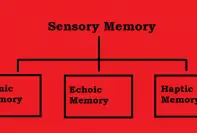Motivated forgetting is a theorized psychological behavior in which people may forget unwanted memories, either consciously or unconsciously.
Although it might get confusing for some, it’s completely different from defense mechanism. Motivated forgetting is also defined as a form of conscious coping strategy.
For instance, a person might direct his/her mind towards unrelated topics when something reminds them of unpleasant events. This could lead to forgetting of a memory without having any intention to forget, making the action of forgetting motivated, hence, Motivated Forgetting.
Classes
There are two classes of Motivated Forgetting.
Psychological Repression, an unconscious act
The concept of psychological repression was first developed in 1915. The concept was based on Sigmund Freud’s psychoanalytic model, which suggested that people subconsciously push unpleasant thoughts and feelings into unconscious. However, repressed memories, although repressed, have been known to influence behavior, dreams, decision making, emotional response and so on. For instance, a child abused by a parent, who had repressed the memory, has trouble forming relationships. Psychoanalysis was the treatment method offered by Freud for repressed memories, with the goal to bring back the fears and emotions unto the conscious level.
Thought Suppression, a conscious act
The deliberate or conscious attempt to suppress memories is referred to as thought suppression. This phenomenon involves conscious strategies and intentional context shifts, so it is goal directed. For instance, if a person faces with stimulants of unpleasant memories, he/she might deliberately try to push the memory into the unconscious by thinking about something else. But, thought suppression can be a time consuming task and quite difficult too. Also, the memories can easily resurface with minimal prompting, which is why it’s closely associated with Obsessive-Compulsive Disorder.
Theories
One of the major theories of motivated forgetting is about retrieval suppression.
Retrieval suppression
The theory suggests that
People forget things because they either do not want to remember them or for another particular reason.
Human mind tends to push disturbing and painful memories deeper into the storage so that it’s difficult to retrieve. It’s also referred to as retrieval suppression. Retrieval suppression is a way to stop negative memories from surfacing onto our brain. This theory was tested using the Think/No-Think Paradigm by Anderson and Green.
Decay theory
Decay theory is another theory of forgetting that refers to the loss of memory over time. Neurons are activated when any information enters the brain and those memories stay in our heads as long as the neurons are active. Frequent recall of the information and rehearsal are two ways to keep the neurons active. But, if the activation isn’t maintained, the memory decays and fades, which is why the phenomenon is referred to as decay theory.
Interference theory
Another theory of motivated forgetting is interference theory, which suggests that subsequent learning of more than one information can hamper person’s ability to retain information. There are two types of interference theory.
Interference theory was also tested by giving nonsense syllables to ten different participants. Some participants slept while others carried on with their day. It was later seen that the participants who slept were able to recall the syllables better, which could be because their memory wasn’t interfered with any new information.
Gestalt Theory of Forgetting
Gestalt psychology has also created a theory called Gestalt Theory of Forgetting. The theory suggests that memories are forgotten through distortion, also known as false memory syndrome. In simple terms, when a memory lacks detail, the individual uses additional information to complete the memory. This leads to recalling of false memories.
Examples
- Some of the earliest documented case of memory suppression and repression relate to the veterans of the Second World War. The cases of motivated forgetting were sky rocketing during the war times, because of injury, trauma, and other mental effects. Because of the limited resources, these earlier cases weren’t understood to their fullest.
- Motivated forgetting was also the prescribed treatment method by large number of doctors and psychologists to those who have experienced sever traumas and abuse. One particular case of a soldier who had undergone treatment method involving motivated forgetting was usually happy but had sudden lapse of depression. Because of this, he was later made to deal with his feelings and anxieties, which drastically decreased the depressive and suicidal thoughts in the soldier.
- Children who had gone through abuses were seen to have repressed and/or suppressed the memory of the incident entirely. Even though lots of people who were abused as a child forget about the traumatic incidents, seeing similar situations in TV and psychotherapies have been known to cause the memories to resurface.




